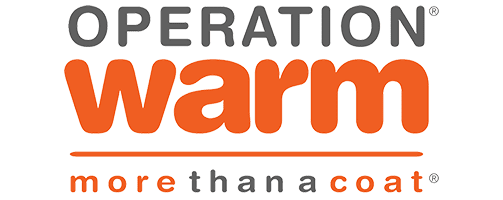

When you purchase a vacation rental property, you’re creating an opportunity to earn extra income however not all properties are profitable. There’s a bit of a learning curve associated with purchasing a profitable vacation rental property. In this article, we’ll cover what to know before buying a vacation rental property. It includes all of the information you need to know before you take that step and purchase your first vacation rental property.
Contents
- Familiarize Yourself with The Pros and Cons
- Choose your Location Carefully
- Conduct a Market Analysis
- Calculate your Anticipated Income and Expenses
- Get Familiar with Laws and Regulations
- Learn About Various Ways to Pay
- Look into Insurance Options
- Plan Your Marketing Strategy
- Try It Out Yourself
- Main Takeaways on What to Know Before Buying a Vacation Rental Property
Familiarize Yourself with The Pros and Cons
As with every business endeavor, there are always pros and cons involved. When it comes to vacation rental properties, you’ll always want to ensure that the pros outweigh the cons for your particular situation.
The Advantages of Buying a Vacation Rental Property
- Rental income: A well-run vacation rental can generate steady income. This income can then be used to pay off the expenses associated with the purchase and upkeep of the property. In a way, rental properties can pay for themselves!
- Property appreciation: In the world of real estate, properties typically rise in value over time. When you decide to sell in the future, it’s likely the property’s value will have increased from the amount you paid for it.
- Tax benefits: According to the taxation system in the area where your vacation rental is located, you may be subject to various tax advantages and write-offs.
The Drawbacks of Buying a Vacation Rental Property
- Renovation and repair costs: As the owner of a rental property, it’s likely you’ll need to spend a significant amount of money on various renovations and repairs. Generally, these properties require more repairs than the average home, so it’s absolutely something to budget for.
- Increased risks: Rental properties near the beach tend to be at a higher risk of damage from natural disasters. In addition, there’s always a chance of property damage from your guests, although it’s not very common. Proper insurance and requiring a security deposit from guests are usually enough to take care of this issue.
- Unexpected costs: In some aspects, owning a vacation rental property can be completely unpredictable. There may always be a new situation that needs to be taken care of and paid for. Because of this, it’s necessary to be prepared to cover unforeseen costs and fees.
Choose your Location Carefully


Location is extremely important when choosing a vacation rental property to buy. It’s always best to stick with an area with which you have some familiarity, like a place that you’ve vacationed before. Consider the question of whether the location you’re interested in will only make money during peak season, or if it will have bookings year-round.
Overall, you’re looking for an accessible and attractive property that will appeal to guests, not just to yourself. Selecting a property located near an airport, grocery store, and other convenient locations will make it more enticing to guests. Read our blog and find out the best location to buy vacation rental property in the USA.
Conduct a Market Analysis
Once you’ve reached the point in the process where you’re choosing between just a couple of properties, take the time to examine the market and demand in the area. Remember that vacation rental demand is very different from residential demand. Look into any nearby attractions and the way their popularity peaks and wanes throughout the year. Pay special attention to popular vacation trends and property types in the area.
After settling on a specific type of property, take a look at the market so that you can make some comparisons. Comparable properties will provide plenty of insight regarding the market, and you can look at multiple online vacation rental listing sites to familiarize yourself with the most successful properties in the area. This can also help you pinpoint the correct price range for a nightly stay at your vacation rental. From there, you can begin to calculate how much income you can expect to earn from your new vacation rental property.
Calculate your Anticipated Income and Expenses
Based on your market analysis, you should be able to start calculating your anticipated income, as well as your expenses. While anticipated income is simple enough to calculate based on the amount you want to charge per night, there are many expenses associated with rental properties that you may not be expecting.


There are mortgage and insurance payments, of course, but you also need to think about property taxes, rental income taxes, and occupancy taxes. There are also online booking fees, homeowner association fees, maintenance, repairs, and utilities. For maintenance costs alone, experts recommend setting aside about one to two percent of your property’s value each year. Advertising may be another added expense. If you choose to hire a vacation rental property manager, that’s yet another cost to add to your calculations.
Get Familiar with Laws and Regulations
Do plenty of research on all of the laws, regulations, and rules regarding vacation rental properties in the area. It’s always essential to do everything by the book in order to avoid any fines, legal fees, and other potential issues.
Learn About Various Ways to Pay
When buying a vacation rental property, there are several options available to you, depending on the specific property you’re purchasing and your credit score.
- Mortgage: Mortgages on second homes typically have higher rates than mortgages on first homes, but they are a common way to purchase a rental property.
- Short-term loan: If you’re in need of cash to purchase your rental property before securing long-term financing, a short-term loan may be an option for you.
- Multifamily loan: This type of loan is only available if you’re purchasing a vacation property that contains two to four units.
- Conforming loan: A conforming loan is a popular choice for owners of vacation rentals because its criteria aren’t very strict. You’ll generally need a down payment of around 20% and a credit score above 680 to get a conforming loan.
- Portfolio loan: If you have multiple properties or a multi-unit property, you may qualify for a portfolio loan. This type of loan usually comes with less strict qualifications than other types.
Look into Insurance Options


You’ll definitely need to have insurance for your vacation rental property, but it’s smart to check whether your existing policy for your first home insurance plan can be extended to your rental property. If not, it’s time to look into other insurance options.
The average rental property insurance plan will have coverage for the structure of your property and the contents of the property that belong to you. It’ll also include liability coverage and coverage for loss of rental income. There are many different companies that offer rental property insurance plans, so be sure to look into several and compare their rates.
Plan Your Marketing Strategy
In order to attract guests, you’ll need to list your property online. RentalTrader is a great place to start! Determine where you want to post your listing and what you’ll do to promote it (maybe sharing it on social media or paying for advertising, for example). There’s always the option to hire a property manager to handle the marketing strategy as well.
Try It Out Yourself
If it’s a possibility for you, it’s a great idea to stay at your rental property for at least a couple of weeks. This gives you the chance to get to know the place in a way that you couldn’t by occasionally spending a few hours there. By actually living in the space for an extended period of time, you’ll be able to take note of what your property already does well and where it needs to be improved.
There are many little things that might not be noticed if you don’t stay at the property yourself, from leaky faucets to problematic paint chipping or issues with the thermostat. In addition, staying at the rental property yourself gives you a chance to truly see it through the eyes of your guests. You can more accurately meet their needs once you’ve stayed at the property as a guest yourself.
Main Takeaways on What to Know Before Buying a Vacation Rental Property
There’s a lot to learn and consider before buying a vacation rental property. Here are the most important points to remember:
- Know the pros and cons of purchasing a rental property before committing to it.
- Choose your location carefully and conduct a thorough market analysis before purchasing a property.
- Once you’ve narrowed down your choices, calculate your expected income and expenses.
- Before purchasing, familiarize yourself with all the local rules and regulations regarding vacation rental properties.
- Consider various methods of payment to determine which is best for you.
- Compare different insurance plans and check to see if your current home insurance can be extended to cover your rental property.
- Plan your marketing strategy and consider hiring a property manager.
- Once you’ve purchased the property, try it out yourself by staying there for an extended period of time. This way, you’ll get to know the property and what needs to be changed or improved before real guests stay there.





